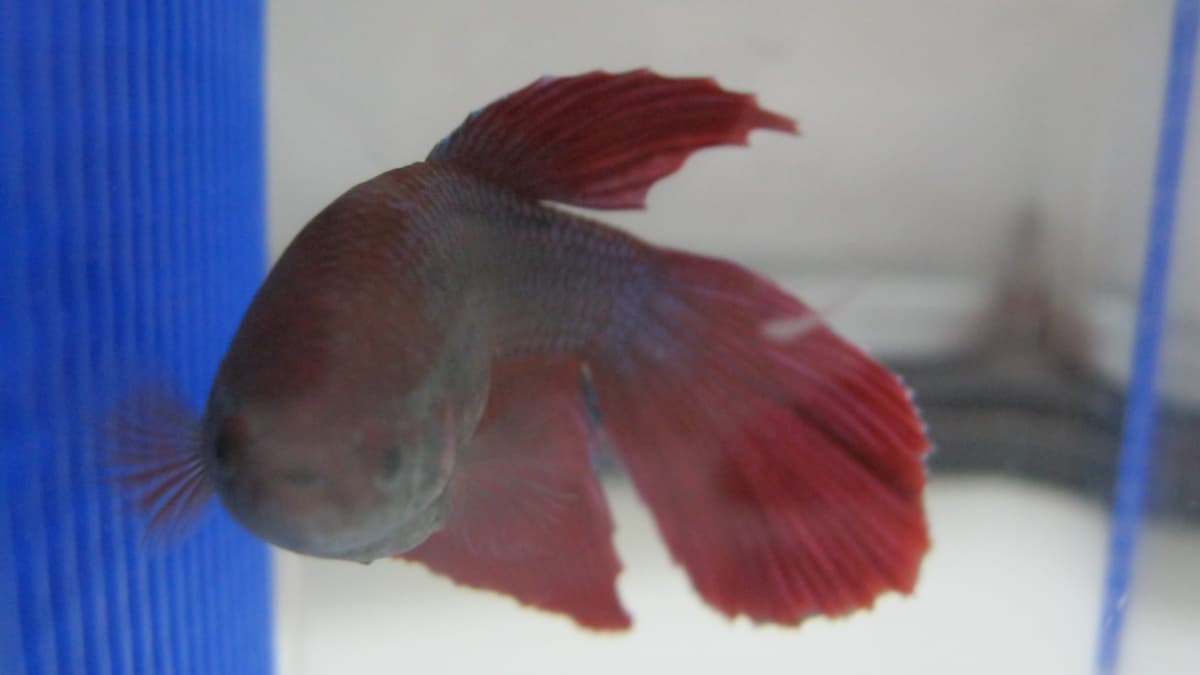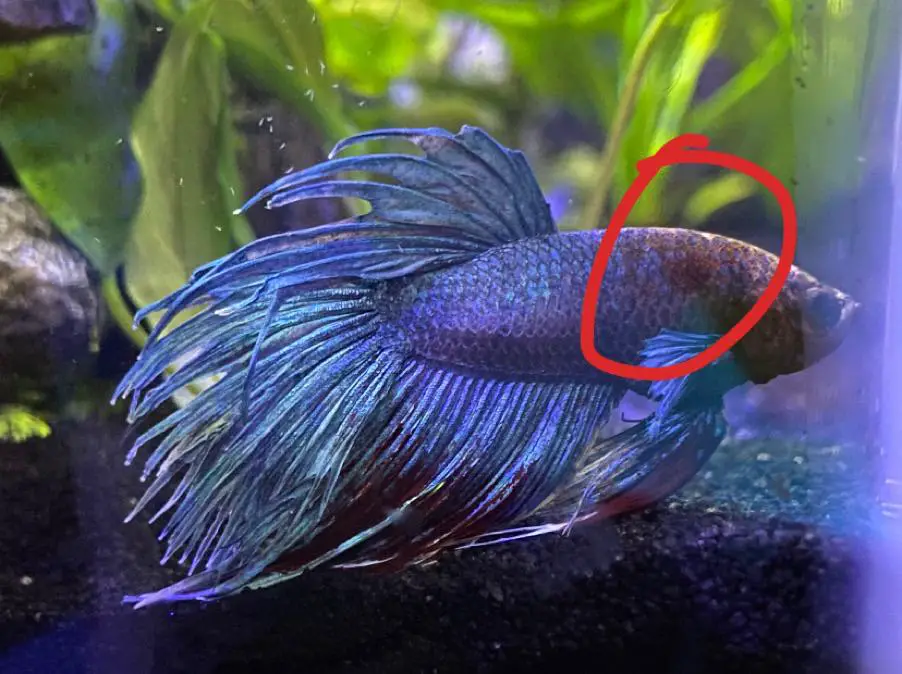Betta fish are one of the most popular fish species kept as pets, and for good reason. They are beautiful, low-maintenance, and have unique personalities. However, like any pet, betta fish can experience health issues, such as the development of brown spots on their bodies.
There are several common reasons why betta fish may develop brown spots, including poor water quality, fungal or bacterial infections, and stress. It is important for betta fish owners to understand these causes in order to properly care for their pets and prevent any potential health issues. Let’s delve deeper into these common reasons and how they can be addressed.
Betta fish may develop brown spots due to various reasons such as poor water quality, stress, infections, or genetics. Brown spots could be a sign of bacterial or fungal infections, which can be treated with medication and improving water conditions. Ensure that the tank is clean, the water is changed regularly, and the fish are not overcrowded. If the issue persists, seek advice from a veterinarian who specializes in fish.

Common Reasons Why Betta Fish Develop Brown Spots
Betta fish are cherished for their vibrant colors, but it can be alarming to see brown spots appear on their scales. These spots can be a sign of underlying health issues that require attention. In this article, we will explore the most common reasons why betta fish develop brown spots, and what can be done to prevent and treat them.
1. Poor Water Quality
Betta fish are sensitive to water quality, and poor conditions can lead to stress and disease. Brown spots can be a sign of bacterial or fungal infections caused by dirty water. It is important to maintain a clean and well-filtered tank, and to perform regular water changes. A good rule of thumb is to replace 25% of the water every week, and to use a water conditioner to remove harmful chemicals.
2. Parasites
Another common reason why betta fish develop brown spots is due to parasites. These tiny organisms can latch onto the fish’s skin and cause discoloration. Symptoms of parasitic infections include scratching against objects in the tank, lethargy, and loss of appetite. Antiparasitic medications can be used to treat these infections, but prevention is key. Quarantine new fish before introducing them to the main tank, and maintain good water quality to reduce the risk of parasites.
3. Stress
Stress can manifest in many ways in betta fish, including brown spots. Stressors can include overcrowding, aggressive tankmates, poor water quality, and inadequate hiding places. To reduce stress, provide plenty of hiding places in the tank, keep the water clean, and avoid overcrowding. If necessary, remove aggressive tankmates to prevent bullying.
4. Genetics
Betta fish are bred for their unique colors and patterns, but genetics can also play a role in the development of brown spots. Some betta fish may simply be predisposed to developing spots as they age. While there is no cure for genetic factors, maintaining good water quality and reducing stress can help prevent the development of brown spots.
5. Nutritional Deficiencies
Betta fish require a balanced diet to maintain their health and vibrant colors. A lack of essential nutrients can lead to brown spots and other health problems. Make sure to feed your betta a varied diet that includes high-quality pellets, freeze-dried or frozen foods, and occasional treats like live or frozen brine shrimp.
6. Chemical Imbalance
The pH and chemical balance of the water can also contribute to the development of brown spots in betta fish. It is important to test the water regularly to ensure proper levels of ammonia, nitrite, and nitrate. If levels are off, perform water changes and use products specifically designed to adjust pH and chemical balance.
7. Injury or Trauma
Betta fish can injure themselves by bumping into objects in the tank or fighting with other fish. Brown spots can develop as a result of these injuries. To prevent injuries, avoid sharp decorations in the tank and make sure fish are compatible with each other. If an injury does occur, treat it promptly with an antiseptic and monitor the fish closely.
8. Skin Tumors
While rare, skin tumors can develop in betta fish and can present as brown spots. These tumors can be benign or malignant and can be difficult to diagnose without a biopsy. If you suspect your betta has a skin tumor, consult with a veterinarian who specializes in fish health.
9. Age
As betta fish age, they may develop brown spots as a natural part of the aging process. While there is no cure for age-related discoloration, ensuring good water quality and proper nutrition can help betta fish age gracefully.
10. Medication Side Effects
Some medications used to treat betta fish can have side effects, including discoloration of the skin. If you notice brown spots after administering medication, consult with your veterinarian to determine if it is a side effect or a sign of an underlying condition.
In conclusion, brown spots on betta fish can be a sign of various health issues, some more serious than others. By maintaining good water quality, providing a balanced diet, and reducing stress, you can help prevent the development of brown spots and keep your betta fish healthy and vibrant. If you notice any unusual behavior or symptoms, consult with a veterinarian who specializes in fish health.
Frequently Asked Questions
Here are some common questions about why Betta fish develop brown spots:
What causes brown spots on Betta fish?
Brown spots on Betta fish are often a sign of bacterial or fungal infections, or even parasitic infestations. These infections can be caused by poor water quality, overcrowding, or stress. It is important to identify the underlying cause of the brown spots to properly treat them.
In some cases, brown spots can also be a natural pigment variation in certain Betta fish breeds. These spots may appear and disappear over time, and are not a cause for concern.
How can I prevent my Betta fish from developing brown spots?
The best way to prevent brown spots on your Betta fish is to maintain a clean and healthy aquarium environment. This means regularly changing the water, providing adequate filtration, and avoiding overcrowding. It is also important to feed your Betta fish a balanced and nutritious diet to boost their immune system.
If you have multiple Betta fish, make sure they have plenty of space to swim and establish their own territories to reduce stress and aggression. Quarantining new fish before introducing them to your aquarium can also help prevent the spread of infections.
How do I treat brown spots on my Betta fish?
The treatment for brown spots on Betta fish will depend on the underlying cause. If the spots are caused by a bacterial or fungal infection, you can use aquarium antibiotics or antifungal medication to treat the fish. Parasitic infestations may require specialized medications.
It is important to follow the instructions on the medication carefully and to continue treatment for the recommended amount of time, even if the spots start to disappear. In addition to medication, improving water quality and reducing stress can also aid in the healing process.
Can brown spots on Betta fish be harmful to humans?
Brown spots on Betta fish are generally not harmful to humans. However, some bacterial and fungal infections can be zoonotic, meaning they can be transmitted from animals to humans. It is important to practice good hygiene when handling your Betta fish or cleaning your aquarium to prevent the spread of any potential infections.
If you notice any unusual symptoms in your Betta fish or experience any health problems after handling them, consult a medical professional for advice.
When should I seek veterinary care for my Betta fish’s brown spots?
If your Betta fish’s brown spots do not improve after improving water quality and reducing stress, or if they are accompanied by other symptoms such as lethargy, loss of appetite, or difficulty breathing, you should seek veterinary care. A veterinarian who specializes in fish can help diagnose and treat any underlying health problems that may be causing the brown spots, and provide guidance on how to maintain a healthy aquarium environment.

7 COMMON BETTA DISEASES FOR BETTA LOVERS
In conclusion, there are several common reasons why betta fish develop brown spots. These include bacterial infections, poor water quality, and stress. It’s important to monitor your betta’s health regularly and take action if you notice any unusual spots or changes in behavior.
One way to prevent bacterial infections is to keep the tank clean and maintain good water quality. This can be achieved by performing routine water changes and properly cycling the tank. Additionally, avoiding overfeeding your betta can also help prevent bacterial infections.
Stress can also contribute to the development of brown spots in betta fish. To reduce stress, make sure the tank is properly decorated with plants and hiding places. It’s also important to provide your betta with a healthy diet and avoid overcrowding the tank. By taking these steps, you can help ensure your betta fish stays healthy and happy.
